Japanese news organization NHK reported that two foreigners have been arrested in Japan for allegedly posting pictures online of manga chapters from Shueisha’s Weekly Shonen Jump and Kodansha’s Weekly Shonen Magazine before their official release. Sharing these “leaks” is considered a violation of Copyright Law and is punishable by jail time. NHK also reported that one of the arrested foreigners, Musa Samir, runs Japan Deal World LLC, a company specializing in shipping Japanese goodies like figurines, manga, magazines, cards, and more worldwide.
According to the police investigation, the suspects obtained the magazines before their on-sale date through wholesale stores in Tokyo. The foreigners took pictures of the content inside the magazine with their cellphones and shared them online, making them available for everyone to see worldwide. The police have confiscated cellphones and PCs from the alleged manga leakers. Although the arrested foreigners denied sharing the images online, they did admit to taking photos of the magazine’s content with their phones.
The Japan police will continue to investigate this issue as they suspect more individuals and groups to be involved in “leaking” manga content. The Kumamoto Cybercrime division revealed during a press conference that they are investigating websites where they found early releases of popular series like ONE PIECE, Jujutsu Kaisen and Blue Lock before they hit the shelves, according to Asahi News.
The Kumamoto Cybercrime division also shared images recollecting evidence of the dissemination of leaks in the form of scans, raw images, and posts on social media:
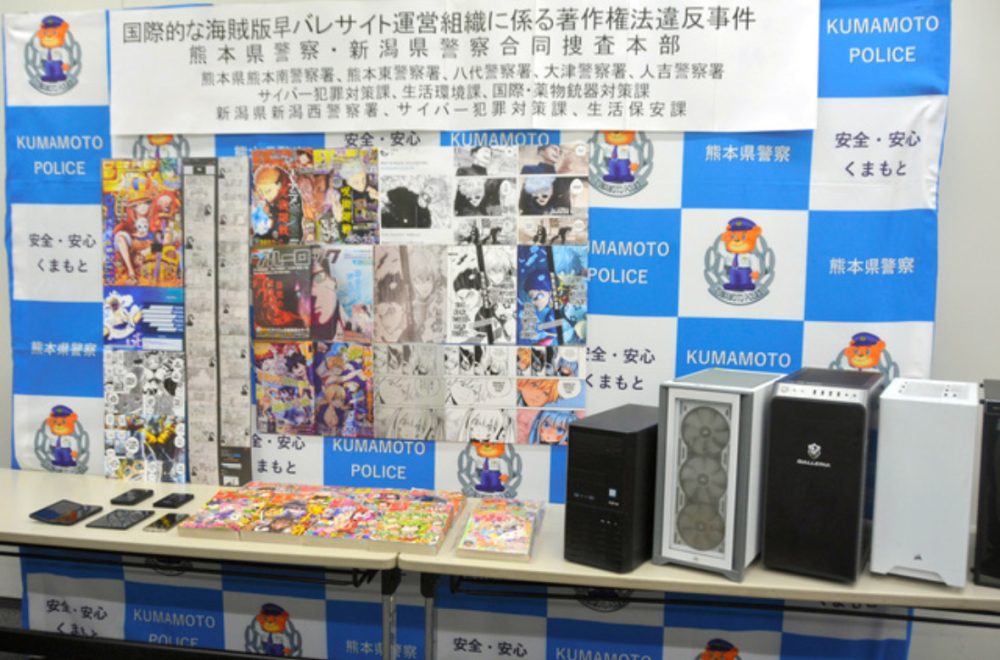
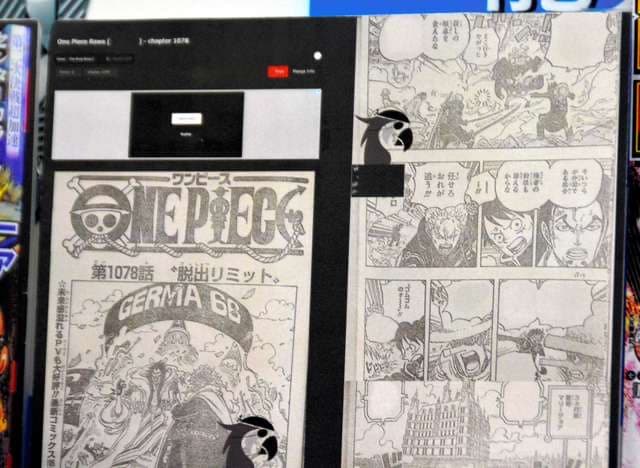

Shueisha, the publisher of Weekly Shonen Jump, has released a statement addressing the recent arrests related to leaks. The editorial emphasizes the shared concern of both the publisher and the authors regarding these issues, reaffirming their commitment to implementing measures aimed at protecting their works and audiences.
As a result of the arrests, many Weekly Shonen Jump manga leakers and scanlation sites have announced on X/Twitter that they won’t continue releasing chapters from Weekly Shonen Jump series on Wednesdays and will have to change their schedules. For reference, Weekly Shonen Jump‘s usual release date is every Monday in Japan (Sunday in the West), which means that people got hold of (and would often start talking online) about the latest chapters of popular Jump series 4 days before readers in Japan (or in English through official channels like VIZ Media’s Shonen Jump app/website or Shueisha’s Manga Plus app/website).


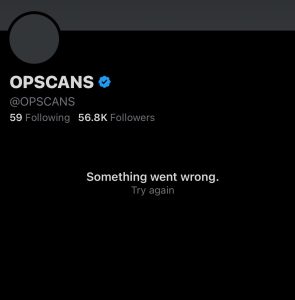
Leaks are far from gone
There’s reasons to feel optimistic after the arrest of the leakers and the subsequent fall of major scanlation groups with this news. In related news, Korean webtoon publisher / entertainment company Kakao Entertainment threatened to take legal action against Tachiyomi, a popular open-source manga reader app, forcing them to stop all activities. However, this doesn’t mean that this type of online manga/webtoon piracy has ended for good. While many high-profile arrests have made manga/webtoon piracy less appealing for some, it will likely continue to exist.
Now you may be wondering: Why are leaks not a thing of the past? Haven’t most high-profile manga leak sources been identified, arrested, or at least threatened enough by other arrests to put an end to this type of activity? The reality is that there are still plenty of leakers who find a way to get their hands on the latest Weekly Shonen Jump magazines before the official release. Did you notice how only two scanlation sites immediately shut down all activities while a few others only opted to make minor changes to their schedules? That is because there are plenty of other sources for pre-street date, leaked copies of Weekly Shonen Jump content still available to them.

How do leakers get hold of manga magazines early?
Don’t expect a detailed answer to this question as little is publicly known about the interaction among leakers, since they aren’t, for obvious reasons, going to talk about their sources and methods in public forums. But here’s a general understanding of how and why chapters of popular weekly manga series get online even before fans in Japan can read them.
Weekly Shonen Jump, along with many other manga magazines including Weekly Shonen Magazine, is sold across Japan mainly in bookstores and convenience stores such as 7-Eleven. In order for the magazine to be released the same day throughout the country, publishers distribute copies of it approximately a week in advance to all stores. Stores are then supposed to wait until the official release date to put them out on the newsstands/store shelves for people to buy them. But clearly, some people manage to get their hands on the magazines at various points in the distribution process before they’re put out for sale.
For example, leakers can bribe a bookstore or convenience store worker to let them buy an early copy of the magazine. Isn’t that against store policy and rules? Well, yes. But it only takes to find one unsatisfied low-wage convenience store worker in all of Japan for them to give you a single copy. In the eyes of the store worker, it’s not that big of a deal or risk. In the eyes of the leaker, this is a solid supply for leaks.
Once in possession of an early copy of the magazine, leakers profit by selling pictures (a.k.a. “raws”) and scans of the magazine to interested third parties. The involved parties can be single individuals or scanlation organizations who then edit the images, translate them into their own languages, and share them online. These third parties are mainly from the West, China, and Korea. After bearing witness to the rise in the number of leaks and leak agents, it is evident that there are many players involved.

Who is affected by leaks?
Let’s begin with you, the reader. Once leaked chapters or pictures are disseminated on social media, the platform’s algorithm and online personalization tools will expose you to it. So, if you are actively engaging with anime/manga-themed content on social media, you will most likely see these leaks and spoilers come across your feeds. Countless times I’ve been exposed to spoilers about the latest chapters of manga series well before their official release date. This truly ruins the mood and anticipation of reading the next chapter. Many fans then opt to stop reading these chapters from the official source and switch to early scans to avoid having their reading enjoyment spoiled by others. Frustrating as it is, there is simply no way around it.
Next are manga publishers and our beloved authors, who don’t see a penny from illegal scanlation sites and leaks shared online. Minya Tomishige, head of Shueisha’s Intellectual Property Division said: “The fact that works are being read for free has resulted in a situation where the authors are not receiving fair profit.” Piracy and leaks are a foe to be wary of and should not be underestimated. In 2021, online piracy from Japanese entertainment (anime, manga, and video games) caused losses of around ¥2 trillion (approximately USD$15 billion at the time). The cost to manga publishers and creators is significant, and it’s why they take online piracy very seriously.
Stop fueling the manga leak culture
I won’t go into the morality of consuming manga illegally. That’s a topic for another day. Right now I want to address readers of leaked chapters and illegal scans of series like ONE PIECE, Jujutsu Kaisen, My Hero Academia, and any other currently serialized Weekly Shonen Jump manga series. I also want to address those who glorify scanlation groups like TCB Scans, OPScans, and Scanpiea, or dedicated leaker accounts like Myamura, Oecuf, and the now-suspended Shonenleaks. If you identify yourself with the described group of people, please understand you are part of the problem.
Scanlation sites and leakers on social media already have a monetary incentive to engage in these criminal activities. Scanlation groups profit from ad revenue generated by page views thanks to manga fans flowing into their sites. Leakers can also earn money thanks to X/Twitter’s new monetary incentive, as they can farm engagement by sharing spoilers and controversial posts. However, if you continually support, endorse, or promote their activities, you are giving them an even greater incentive to continue their illegal activities. Not to mention, it will make becoming a leaker more attractive to others leading to even more leakers. And that is unacceptable.
The glorification of early leaks of manga/anime news shouldn’t be ignored either. Sure, being one of the first to find out your favorite manga is getting an anime adaptation from a leak can be exciting. So yes, by all means, be excited. But don’t attribute that happiness to the sender of news. These news were going to happen sooner or later. The leaker didn’t make it happen. Instead, the leaker was an agent in hurting not only the original creator and publisher, but also ruining the surprise of those waiting patiently.
What truly infuriates me the most is the fact manga fans continue to read illegal scans of the aforementioned series when MANGA Plus exists. MANGA Plus is the official app and website from Shueisha, publisher of Weekly Shonen Jump, that offers worldwide simultaneous release with Japan of the latest chapters of Weekly Shonen Jump series for FREE. On top of that, using MANGA Plus, with or without a subscription, helps the series and authors.
If you can’t just wait a couple more days to get the very same chapter, translated by professionals, with better scan quality, on a site that gives back to the creator of a manga series you so claim to be a fan of, then, please take a look in the mirror. Can you really call yourself a fan when you read illegally what can be read on a legal, accessible, and free platform? Stop the mockery. Do yourself and all of us a favor and use MANGA Plus to read your Shonen Jump manga. Thanks.
Unfortunately, leakers and scanlation groups will continue to exist as long as there is a demand for it. We have a great platform in MANGA Plus and we should collectively do our best to support it. There are other great platforms, definitely, but not one has the global reach of MANGA Plus. So let’s take advantage of it and use it. If you are part of the problem, you can make up for it by jumping to the good side. Leakers are like bad weeds, they are hard to kill. But if we take away their ground by not consuming and interacting with their leaks, we can take an important step in the right direction.


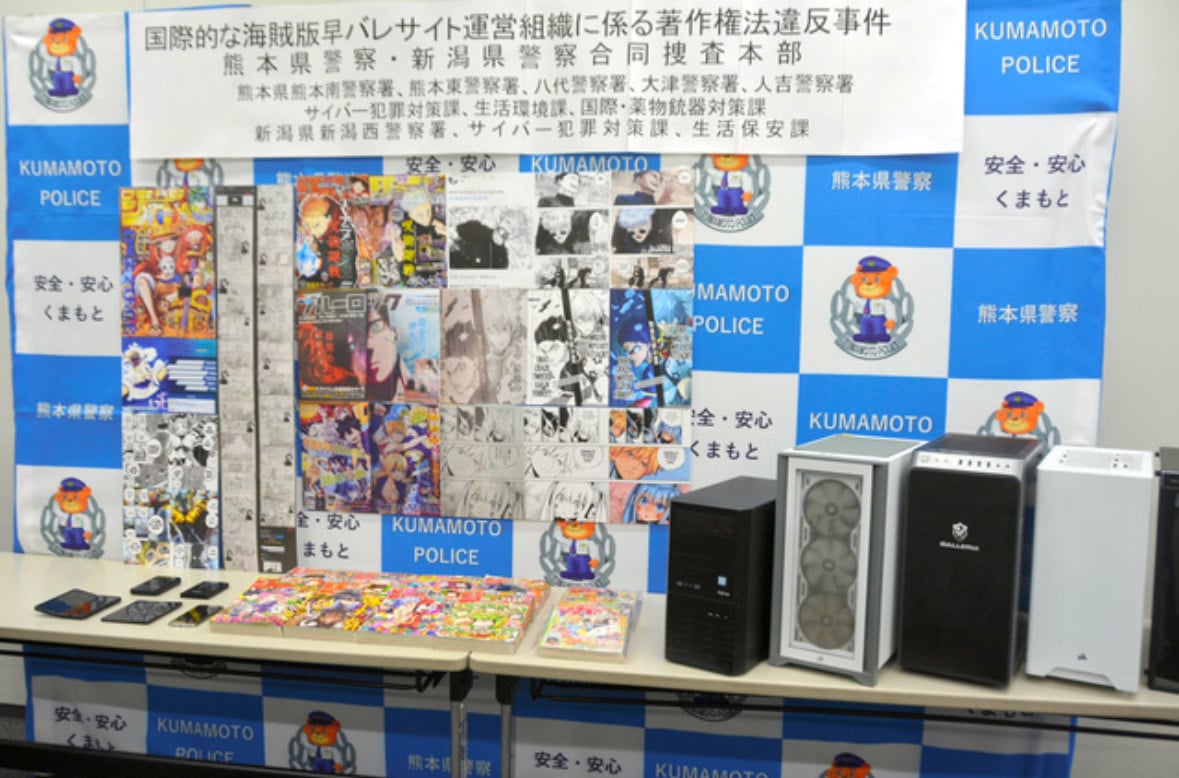

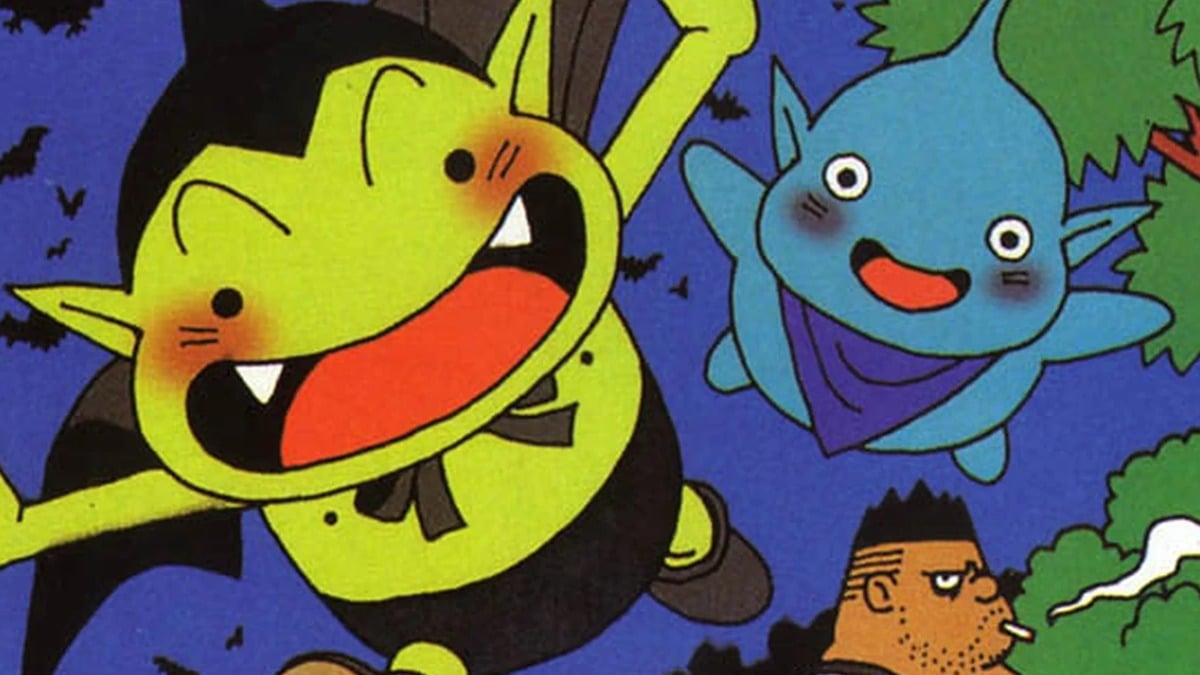




Video games have this issue too. Nintendo sends review copies out early and they always get dumped. I don’t pirate games but it was funny when the pirates got busted going online in the pirated games early. And for pokemon omega ruby and alpha sapphire all Europe got punished due to X and Y being sold pre release date
I miss leaks
So why have you placed “foreigners” within quotes?
Comments are closed.